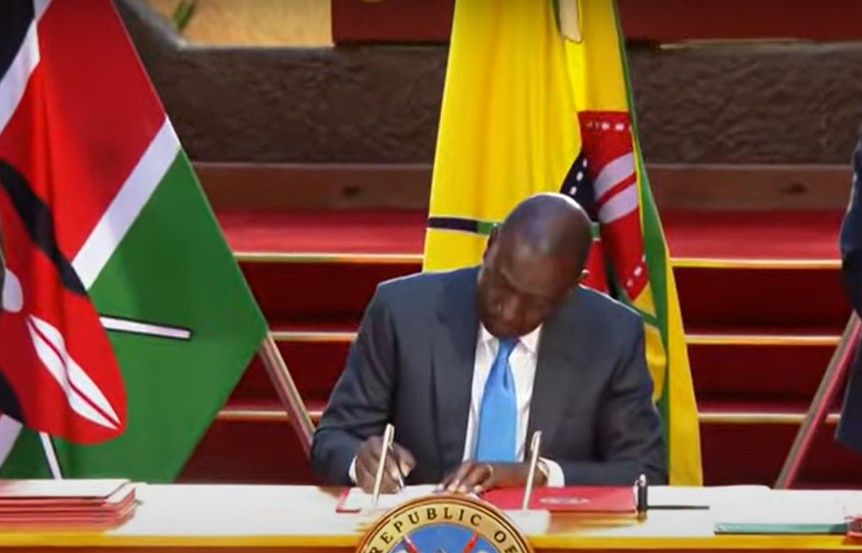Govt officially bans state officers, public servants from harambees

The government has officially banned state officers and public servants from participating in harambees.
In a statement to senior government officers and heads of state corporations, head of public service Felix Koskei advised the state officers and public servants to observe and comply with the directives in line with President William Ruto’s remarks on July 5, 2024.
“In order to uphold the national principles and values of governance enshrined in Article 10 of the Constitution and in various legislation including the Public Officers Ethics Act, the Public Service Commission Code of Conduct and Ethics, and the Public Collections Act, all public officers are required to adhere to the highest standards of ethical conduct and to secure their strict compliance with the directive as well as compliance by all officers under their supervision, direction, or control,” Koskei said.
Opulence in harambees
Ruto ordered an end to the public harambees after the youth complained about public servants flaunting wads of cash in church contributions even as the government preached austerity.
Koskei noted that harambee is a national motto and that the clarion call to pool resources together in times of crises had come under disrepute by being linked to perception of corruption and abuse of office.

Head of Public Service Felix Koskei has officially banned govt officers and public servants from engaging in public harambees. PHOTO/@koske_felix/X
“In that regard, and conscious of the duty to ensure that the spirit of Harambee continues to propel its noble ideals while addressing concerns on accountability and ethical conduct within the public service, it is notified that His Excellency the President has directed that no state officer and public servant shall participate in public collections (harambees) henceforth,” Koskei emphasized.
Harambee law underway
He directed that the measures would serve temporarily even as the Attorney General prepares a legal framework within which the harambees would be conducted.
“All public officers are further notified that all the Service Commissions (Public Service Commission, Parliamentary Service Commission, Judicial Service Commission, Teachers Service Commission and Police Service Commission) in collaboration with the Ethics and Anti-Corruption Commission (EACC), will establish an institutional framework to monitor compliance with this new government policy. This framework is an interim administrative State Intervention until a law facilitating structured and transparent contributions for public, charitable, and philanthropic purposes is enacted,” Koskei noted.
This directive is amongst a raft of austerity measures taken by Ruto who also abolished budgets to the offices of the spouses of the President, Deputy President and that of the Prime Cabinet Secretary to free the funds to cater for other more pressing sectors of the economy.
Author
Arnold Ngure
General reporter with a bias for crime reporting, human interest stories and tech. Reach out via: arnold.ngure@mediamax.ke
View all posts by Arnold Ngure









